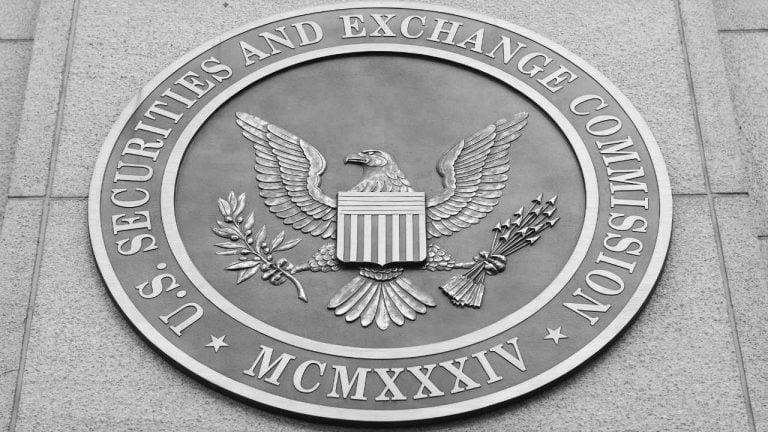
Introduction
The U.S. Securities and Exchange Commission (SEC) has recently released its enforcement results for fiscal year 2023, specifically focusing on actions related to crypto assets. According to the SEC, this year has been highly productive and impactful in terms of its enforcement efforts in the crypto asset securities space. SEC Chairman Gary Gensler emphasized the importance of the Division of Enforcement's work in protecting the investing public.
SEC's FY 2023 Crypto Enforcement Actions
The SEC announced that it has filed a total of 784 enforcement actions for fiscal year 2023, marking a 3% increase from the previous year. These actions cover a wide range of areas, including billion-dollar crypto fraud schemes, unregistered crypto asset offerings, platforms, intermediaries, and illegal celebrity endorsements.
Notable Cases
The SEC highlighted several high-profile cases in the crypto industry. These include actions against Terraform Labs and its co-founder Do Kwon, Richard Heart and his controlled entities, former FTX CEO Samuel Bankman-Fried (SBF), Genesis and Gemini, Celsius, Kraken, Nexo, Beaxy, Bittrex, Binance, and Coinbase. The SEC has taken significant steps to address fraudulent activities and ensure compliance within the cryptocurrency space.
First Actions Against NFT Issuers
In fiscal year 2023, the SEC filed its first actions against non-fungible token (NFT) issuers. Impact Theory LLC and Stoner Cats 2 LLC were charged by the SEC in relation to their NFT offerings. This demonstrates the SEC's commitment to regulating the evolving NFT market and protecting investors.
Action Against Influencers
The SEC also took action against individuals who allegedly promoted crypto asset securities without disclosing their compensation. Among those named were Paul Pierce, Kim Kardashian, Lindsay Lohan, Jake Paul, Michele Mason (Kendra Lust), Miles Parks McCollum (Lil Yachty), Shaffer Smith (Ne-Yo), Aliaune Thiam (Akon), DeAndre Cortez Way (Soulja Boy), and Austin Mahone. The SEC's actions aim to address the potential risks associated with influencer-driven promotions in the crypto industry.
Record Number of Crypto Enforcement Actions
In addition to the SEC's enforcement actions, the Commodity Futures Trading Commission (CFTC) also reported a significant increase in crypto-related enforcement actions. The CFTC filed 47 actions related to digital asset commodities, representing over 49% of all actions filed during the fiscal year.
Conclusion
The SEC's enforcement actions in fiscal year 2023 reflect its commitment to protecting investors and ensuring compliance within the crypto industry. With a focus on addressing fraudulent activities, unregistered offerings, and illegal endorsements, the SEC aims to create a safer and more transparent environment for participants in the crypto asset securities market.
What are your thoughts on the SEC's enforcement actions against the crypto industry? Share your opinions in the comments section below.
CFTC
bbb.org
law.cornell.edu
- 7 U.S. Code SS7 – Designation board of trade as contract marketplaces
- 26 U.S. Code SS 408 – Individual retirement accounts
forbes.com
How To
The History of Gold as an Asset
From the beginning of history, gold was a popular currency. It was universally accepted and loved for its beauty, durability, purity and divisibility. Due to its value, it was also internationally traded. Different weights and measurements existed around the world, however, because there were not international standards to measure gold. For example, in England, one pound sterling was equal to 24 carats of silver; in France, one livre tournois was equal to 25 carats of gold; in Germany, one mark was equal to 28 carats of gold; etc.
The United States started issuing American coins in the 1860s made of 90% copper and 10% zinc. This caused a drop in foreign currency demand which resulted in an increase of their prices. At this point, the United States minted large amounts of gold coins, causing the price of gold to drop. They needed to pay off debt because they had too much money coming into circulation. They sold some of their excess gold to Europe to pay off the debt.
Most European countries distrusted the U.S. Dollar and began to accept gold as payment. Many European countries began to use paper money and stopped accepting gold as payment after World War I. The gold price has gone up significantly in the years since. Although the price of gold fluctuates today, it remains one of your most safe investments.
—————————————————————————————————————————————————————————————-
Based on [POSTTITLE]
by [POSTAUTHOR]














